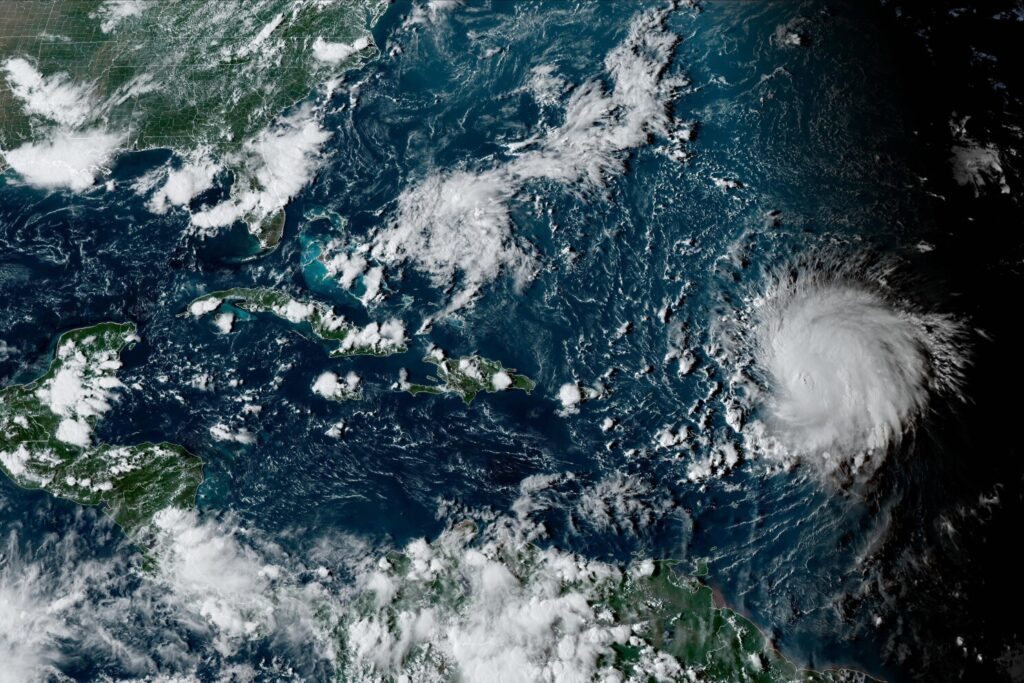
This satellite image provided by the National Oceanographic and Atmospheric Administration shows Hurricane Lee, right, in the Atlantic Ocean on Friday, Sept. 8, 2023, at 4:50 p.m. EDT. Lee is rewriting old rules of meteorology, leaving experts astonished at how rapidly it grew into a goliath Category 5 hurricane. (NOAA via AP)
Hurricane Lee whirled north of Puerto Rico on Tuesday as a Category 3 storm, with forecasters noting it would remain in open waters through this week while on a path to Atlantic Canada.
The storm was located about 555 miles (895 kilometers) south of Bermuda. It had winds of up to 115 mph (185 kph) and was moving west-northwest at 6 mph (9 kph).
A tropical storm watch was issued for Bermuda, with Lee forecast to pass just west of the island late Thursday, the National Hurricane Center said.
By Sunday, Lee was forecast to weaken into a tropical storm and likely make landfall in Nova Scotia, Canada, according to AccuWeather.
“A significant storm surge will occur along with the strongest winds and risk of property damage,” AccuWeather said in a statement.
Lee is expected to weaken in upcoming days as it enters cooler waters.
“Despite the weakening that is forecast, keep in mind that the expanding wind field of Lee will produce impacts well away from the storm center,” the hurricane center said.
Lee was generating dangerous surf and rip currents for the Lesser Antilles, the British and U.S. Virgin Islands, Puerto Rico, Hispaniola, the Turks and Caicos Islands, the Bahamas, Bermuda and parts of the southeast U.S. coast. Those conditions were expected to soon spread to the U.S. East Coast.
“It remains too soon to know what level of additional impacts Lee might have along the northeastern U.S. coast and Atlantic Canada late this week and this weekend,” the National Hurricane Center said.
Lee is the 12th named storm of the Atlantic hurricane season, which runs from June 1 to Nov. 30 and peaked on Sunday.
Meanwhile, Margot became the fifth named hurricane of the season on Monday. It was located some 890 miles (1,430 kilometers) southwest of the Azores. It had maximum sustained winds of 85 mph (140 kph) and was moving north at 12 mph (19 kph). Margot is forecast to remain over open waters.
The National Oceanic and Atmospheric Administration has forecast 14 to 21 named storms this season. Six to 11 of those are expected to strengthen into hurricane, and of those, two to five could develop into Category 3 storms or higher.




